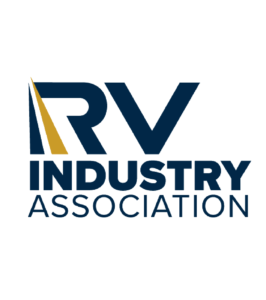New Edition of Canadian RV Standards Set to be Released
 The Canadian Standards Association (CSA) is publishing a new edition of the CSA Z240 RV standard. The CSA Z240 is the Canadian RV industry safety standard equivalent of the American National Fire Protection Association (NFPA) 1192, according to a News & Insights report by the RV Industry Association (RVIA).
The Canadian Standards Association (CSA) is publishing a new edition of the CSA Z240 RV standard. The CSA Z240 is the Canadian RV industry safety standard equivalent of the American National Fire Protection Association (NFPA) 1192, according to a News & Insights report by the RV Industry Association (RVIA).
The Canadian Standards Association Technical Committee received several proposed CSA Z240 revisions, including new lithium battery requirements, labeling changes, updating the number of liquid propane cylinders, and updating the definition of an RV. The new CSA Z240 edition is scheduled to be available for public comment in April 2023 and to be published this November.
When considering the upcoming revision, RV standards experts are acknowledging the importance of keeping both the American and Canadian standards as closely synchronized as possible.

Ryan Hyer
“Most of the RV manufacturers in America export to Canada because since there aren’t many Canadian RV manufacturers— consumers in Canada get their RVs from the American market,” explains Ryan Hyer, a CSA Technical Committee voting member and a Listing Compliance Engineer at Testing Engineers International. “If there were major differences in the two countries’ standards it would mean RV manufacturers would have more to worry about in terms of ensuring that they met the appropriate standard, if materially different. It’s the goal of the RV industry to try to make the two standards as closely aligned as possible.”

Shane Devenish
Shane Devenish, President of the Canadian Recreation Vehicle Association and a Technical Committee voting member, agrees that keeping the two standards as synchronized as possible makes it easier for RV manufacturers to build units regardless of whether they’re being shipped to the United States or Canada. “We’re trying to make it as easy for our members as possible,” he says. “If manufacturers don’t have to worry about significantly different standards, they can basically build the unit the same way and with the same components except for some labeling variances. It’s a huge benefit for manufacturers and suppliers because then they don’t have to source different components.”
He adds that maintaining a close relationship with the RV Industry Association’s standards department has been a crucial component of keeping both codes synchronized. “The American and Canadian standards have different cycles, so we try to work together in between to do our best to keep the other as updated as possible. We are fortunate to have such a good relationship with the RV Industry Association and its members, so we can talk about what NFPA 1192 is looking at for their next edition when CSA Z240 is being looked at. If the NFPA 1192 Technical Committee is looking at changing something, perhaps we can get ahead of the curve and include that in CSA Z240 knowing that it will be included in the next edition of NFPA 1192. We’re very thankful to have such a good relationship and to be able to do that.”
Along with staying synchronized, both the Canadian and American RV standards departments reflected on the importance of regularly updating both sets of standards to maintain the safety of RVs sold in North America.

David Mihalick
“Technology and manufacturing processes are changing all the time, so we have to keep those standards current with what’s going on in the marketplace,” says David Mihalick, THOR Industries’ Vice President of Vehicle Safety & Regulatory Compliance. He has also served on the Canadian Standards Association Technical Committee for the past decade and, for this upcoming edition of Z240, he was elected as the Committee’s Vice Chairman. “The RV industry is innovative, and when they come up with new ideas, we need to make sure they’re implemented safely. In the RV industry that’s done through the standards process. If someone has a great idea, we need to review the standards around it to make sure it can be implemented safely on the RV. That goes for both CSA Z40 and NFPA 1192.”
“Times change, technologies change, test methods change, and RVs change,” agrees Hyer. “It’s a good thing to review our standards documents every so often to make sure it still says what we meant, whether there’s a way we can say it better, and if there’s something new that we need to address. Some of the RVs now are implementing rechargeable battery systems, solar panels, or hydrogen fuel cells. These new technologies weren’t around back when the standards were originally written so we have to include standards for them. It’s important to create a basic framework for safety before we get too far into adopting these new technologies.”
Hyer also acknowledged the important role the RV Industry Association’s standards department plays in the industry. “They work hard and they’re good at it. They make all this possible. All of us who aren’t directly in the RV Industry Association help out and make the industry as a whole greater. I don’t know we would be able to pull that off without them behind the scenes coordinating it all.”
The RV Industry Association will provide a link when CSA Z240 becomes available for public comment next month. In the meantime, learn more about CSA Z240 here.
Source: https://rvbusiness.com/new-edition-of-canadian-rv-standards-set-to-be-released/






